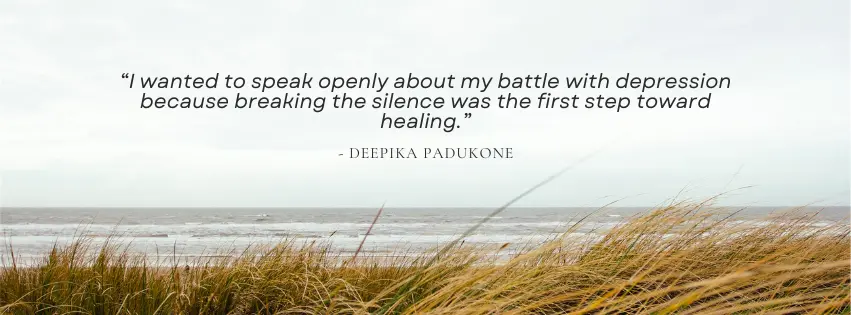Digital Addiction
Reclaim your focus and well‑being—personalized digital addiction therapy tailored for busy lives across India.
Digital Addiction
Digital Addiction Therapy in India: Restore Balance and Well‑Being
Screen overuse—from endless scrolling and gaming marathons to online gambling binges—can quietly erode your focus, sleep, and relationships. In fact, studies find that 40% of Indian medical students exhibit signs of smartphone addiction, linking it to anxiety and poor academic performance . At FindMyTherapist.in, our certified counselors blend digital detox planning, behavior‑change techniques, and cognitive strategies to help you regain control, rebuild real‑world connections, and thrive offline.
Endless Scrolling & Gaming
Losing hours to social feeds or game levels can feel like a harmless break, until assignments, work, or family time suffer. Over weeks, this habit strengthens, making it harder to step away—even when you know you should.
Online Gambling Urges
A craving to place one more bet can spike adrenaline and promise quick wins, but it often ends in regret. These cycles of hope and loss fuel stress and financial strain.
Sleep Disruptions & Fatigue
Late-night screen use suppresses melatonin, making it hard to fall asleep and easy to wake up groggy. As sleep debt builds, concentration and mood decline, creating a loop of helpless fatigue.
Social Isolation & Anxiety
Relying on digital connections can replace genuine conversations, leaving you feeling lonely in a crowded feed. Moreover, comparison on social media often triggers anxiety and low self‑esteem.
Recognizing Digital Addiction
Before change, there must be awareness. Many people dismiss excessive screen time as harmless, yet it often signals deeper emotional or behavioral concerns.

Academic and Work Pressures
Tight deadlines and high expectations often lead students and professionals to seek escape in their phones. What starts as a brief distraction can quickly become a coping mechanism for stress.
Lack of Real‑Life Connection
When face‑to‑face interactions feel draining or scarce, digital platforms step in as substitutes. This pattern deepens isolation instead of alleviating it.
Easy Digital Access
Mobile internet and 24/7 app availability mean relief is always one tap away. Unfortunately, this constant access reinforces the habit rather than breaking it.
Dopamine‑Driven Rewards
Every notification, like, or in‑game achievement floods the brain with dopamine, creating a reward loop. Over time, you chase these digital “hits” instead of real‑world fulfillment.
Root Causes & Triggers
Understanding why you reach for the screen is the first step toward change. In India, common triggers include academic stress, career pressure, and a lack of offline community support.
Digital Detox Planning
Together we design tech‑free windows—such as meal times or pre‑bed hours—to rebuild healthy rhythms. Gradually, these pauses become natural breaks that reduce screen dependence.
Self‑Monitoring & Awareness
You track daily screen use and mood shifts in a simple log. Reviewing this data each week reveals patterns and guides targeted adjustments.
Cognitive‑Behavior Strategies
We challenge thoughts like “just five more minutes” and replace them with reminders of your priorities. Over several weeks, these new thought patterns strengthen self‑control.
Relaxation & Coping Skills
Simple exercises—guided breathing, short walks, or mindfulness moments—become go‑to tools when urges spike. Regular practice builds emotional resilience and quiets compulsive behaviors.
Behavioral Substitution
We identify offline activities you enjoy, such as family chats, hobbies, or prayer, and swap them in for digital time. As these positive actions repeat, they replace screen habits naturally.
How Our Therapy Works
We focus on practical, structured methods that address both behavior and mindset. Each step is tailored to your goals, culture, and daily routine.
Ready to break free from screen overuse? Book a session with a qualified digital addiction therapist today.
Reach Out
Benefits You’ll Feel
Therapy doesn’t just curb screen time—it rebuilds well‑being from the inside out. As digital habits shift, you begin to reconnect with yourself, your goals, and those around you in meaningful ways.
Better Sleep and Energy
By setting clear digital curfews—especially before bedtime—your body’s natural sleep rhythm begins to reset. With deeper, uninterrupted rest, you wake up feeling more refreshed, alert, and ready to take on the day.
Improved Focus and Productivity
Fewer digital distractions mean your brain has more space to concentrate on what truly matters. As a result, tasks take less time, your output improves, and you feel more satisfied with your daily accomplishments.
Stronger Relationships
When screens no longer dominate your evenings, space opens up for real conversations and shared moments. Whether it’s spending time with family or catching up with a friend, these small interactions rebuild trust and emotional closeness.
Reduced Anxiety and Guilt
Therapy helps break the binge‑regret loop by giving you the tools to manage triggers and set boundaries. As you regain control, the guilt fades and is replaced with a sense of empowerment and peace.
Frequently Asked Questions
Digital addiction therapy blends digital detox planning, cognitive‑behavior techniques, and behavior substitution to help you cut back on screen use. It offers structured steps and ongoing support to rebuild healthier habits.
Most clients notice positive change within 4–8 weeks of weekly sessions and daily exercises. Progress is tracked each session, so adjustments keep you moving forward.
Yes. By setting clear limits, challenging addictive thoughts, and substituting offline activities, therapy helps you regain control over gaming and gambling habits.
Absolutely. Our secure video sessions deliver the same structured modules and personalized feedback as face‑to‑face work, plus added convenience for your busy Indian lifestyle.
Anyone—from teens and college students to working professionals—can gain from these techniques. We use culturally relevant examples to teach healthier screen habits for every age and context.







